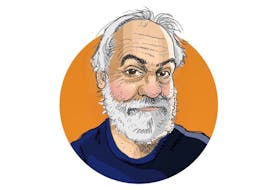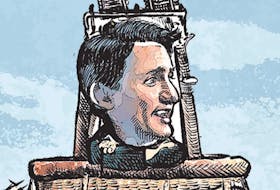The final report of the National Inquiry Into Missing and Murdered Indigenous Women and Girls is an uncomfortable read, particularly when it comes to the bitter agony evident in the testimony of family members of who have lost loved ones.
Bernice C. talked about her daughter, Jennifer.
“Somebody stole her, had no right to her, had no right to take her. She could have had a baby. She could have got married. But that was taken from her. Somebody decided she didn’t have right to live but she had every right to live,” she told the inquiry.
The MMIWG probe was launched by Prime Minster Justin Trudeau’s Liberal government as part of its commitment to implement the recommendations of the Truth and Reconciliation Commission. It was a reasonable gesture of reconciliation, charged with symbolism, in the face of truly appalling statistics of violence against Indigenous women. The RCMP has said they made up 16 per cent of all female homicides between 1980 and 2012, despite comprising just 4 per cent of the population.
Victimization rates are not only triple those of non-Indigenous women, they are double those of Indigenous males.
While Indigenous identity does not explain the high victimization rate among native men — analysts suggest the increased presence of other risk factors such as homelessness, drug use or poor mental health are more responsible — Indigenous women are the country’s most vulnerable citizens simply by virtue of being Indigenous and female.
As Trudeau said, this is “not a relic of our past.”
No parent could read Bernice C.’s testimony and not be moved — certainly not this parent.
But the report’s release seems set to stoke division rather than engender good will.
It could have offered a focused blueprint on how to improve the safety of Indigenous women; instead the inquiry commissioners have produced a sprawling report that demands transformational change in all corners of Canadian society.
Despite Trudeau’s assurances that the document will not end up gathering dust, it appears destined to join the growing bibliotheca of mothballed Indigenous reports.
For that, the commissioners have themselves to blame.
They were asked to investigate violence against Indigenous women and to recommend concrete actions to increase their safety.
They chose to make the broadest possible interpretation of that mandate, rather than limit it to the specific issue of murdered and missing women.
Their conclusion is that the disproportionate rate of violence against Indigenous women is a direct consequence of hundreds of years of colonialism and discrimination that constitutes a “genocide.”
If it is a genocide, it is not one recognized by retired Lt.-General Romeo Dallaire — and he should know, having seen the real thing up close while commanding the UN mission in Rwanda in 1994. He said Monday that for him, genocide is the deliberate act of killing people of a certain ethnicity.
But the commissioners chose instead to use the interpretation of Polish-Jewish scholar Raphael Lemkin, who deemed that genocide is a co-ordinated plan to destroy the foundations of a national group with the aim of annihilating the group.
Systemic racism, sexism and colonialism has produced “institutional violence,” perpetuated by institutions such as the military, the church, the educational system, the health system, the police, emergency responders and the justice system, the report asserted.
The commissioners called on everyday Canadians to help “decolonization” by becoming strong allies. But even right-thinking people who are appalled by the victimization statistics are likely to recoil at the charge they are complicit in genocide. Canada has added three million new citizens in the past decade. Are newly-arrived Canadians going to feel remorse for a colonial past for which they bear no responsibility? To ask the question is to answer it.
While focusing on “institutional violence,” the report spends comparatively little time looking at household victimization and spousal violence rates that are significantly higher than those for non-Indigenous Canadians.
The inquiry’s time would have been better spent detailing the report’s principle recommendation — the creation of a national action plan to address violence against Indigenous women. It calls for equitable access to employment, housing, education, safety and health care but offers few specifics.
In his sober response Monday, Trudeau said his government will develop a national plan to augment its efforts on housing, boil water advisories, education and indigenous languages.
He called the report’s release “an essential day in the history of this country” — but, noticeably, he made no mention of genocide.
Many of the report’s “calls for justice” from government are sensible; others are unworkable.
In the former category, the production of an annual report of ongoing action; the creation of an Indigenous rights ombudsman; the delivery of violence prevention programs; and improved access to major crime units in the north appear to be good ideas.
Among the less pragmatic recommendations are the suggestion to re-open the Constitution to bring it into conformity with the U.N. Declaration on the Rights of Indigenous People; and, the creation of a guaranteed annual liveable income.
Some are borderline satirical — such as the recommendation calling for the promotion of Indigenous women to leadership positions (this government has tried that, with unfortunate consequence).
Others are set to get a frosty reception from the Liberals — for example, the suggestion that in murder cases where there is a pattern of intimate partner violence and abuse, a harsher sentence is awarded. Crown-Indigenous Relations minister Carolyn Bennett has already said she has heard a negative response to the idea because it removes the discretion of judges in similar fashion to mandatory minimum sentencing guidelines.
Most of the recommendations can be debated by reasonable people as part of a public policy discussion.
What is regrettable is the uncompromising claim by chief commissioner Marion Buller that all Canadians, except the country’s Indigenous inhabitants, are party to a “deliberate, race, identity and gender-based genocide.”
The final report offered the chance for closure and for families to put their pain behind them. The world is full of weeping but it does not go backward.
Yet, rather than a new dawn, where Indigenous and non-Indigenous Canadians could come together to condemn an unacceptable past and commit to build a better future, the opportunity has been eclipsed. Instead, we have the indictment that the bulk of the citizenry is engaged in annihilating its Indigenous minority.
That is not going to help the healing to begin.
• Email: jivison@nationalpost.com | Twitter: IvisonJ
Copyright Postmedia Network Inc., 2019









